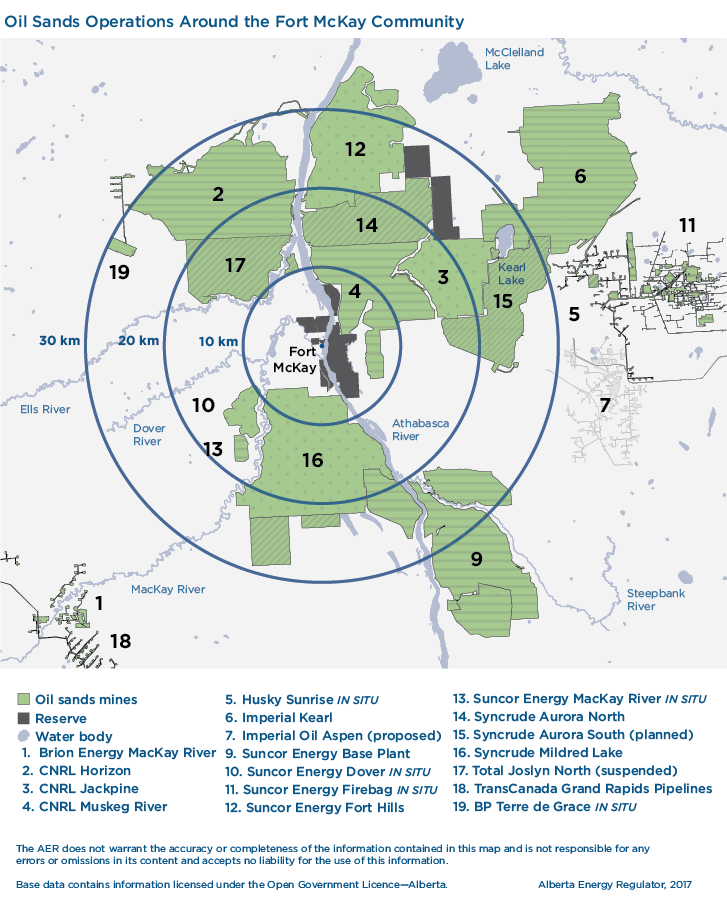For years, the Fort McKay First Nation and Fort McKay Métis have voiced concerns about air quality and odours from oil sands operations and questioned whether current monitoring, response protocols, and thresholds are adequate.
In September 2016, following a year-long study that reviewed these concerns, the Government of Alberta, the AER, and Fort McKay First Nation released a report that presented 17 recommendations to help reduce these concerns.
About Fort McKay
Fort McKay is located 58 kilometres (km) north of Fort McMurray, Alberta, and is surrounded by oil sands operations. Eight open-pit and three in situ oil sands mining operations are located within a 30 km radius of the centre of the Fort McKay community, and more are being planned. These operations can affect air quality and contribute to odours in the community. Implementing the report’s recommendations will help reduce these concerns.

About the Study
We received 172 air quality and odour complaints related to local oil sands operations from the Fort McKay community over a five-year period (2010–2014). In 2015, we began a year-long study with Alberta Health to review these complaints. The study also reviewed industry performance monitoring data and regulatory requirements, ambient air quality monitoring data, and air quality and odour thresholds.
What We Found
At the end of the joint study, our findings included the following:
- In most cases, oil sands facilities were operating under normal conditions and were following our requirements during the time of the complaints.
- A link exists between emissions from oil sands operations in the area and air quality and odours in Fort McKay.
- The air in Fort McKay sometimes contains emissions that exceed odour and health thresholds.
- Response protocols for air quality and odour complaints must be improved.
- More work is needed to better understand the connection between emissions and oil sands operations and how exposure to emissions that exceed thresholds may impact human health.
Recommendations
Based on these findings, 17 recommendations were developed to help improve air quality and reduce odours. These recommendations are presented in the 2016 report Fort McKay Recurrent Human Health Complaints Technical Synthesis and are focused on the following:
- aligning emergency response to air quality exceedances
- improving response protocols for odour complaints
- identifying, assessing, and managing emissions from oil sands operations
- monitoring air quality
- conducting a human health assessment based on ambient air quality data
Next Steps
Our work to assess air quality and odour complaints from the Fort McKay community and to develop recommendations to improve air quality and reduce odours is a first step in the process to resolve these concerns. We have significant work ahead of us as we implement these recommendations. However, all parties involved remain committed to working together to make the necessary changes to resolve air quality and odour concerns in Fort McKay.


